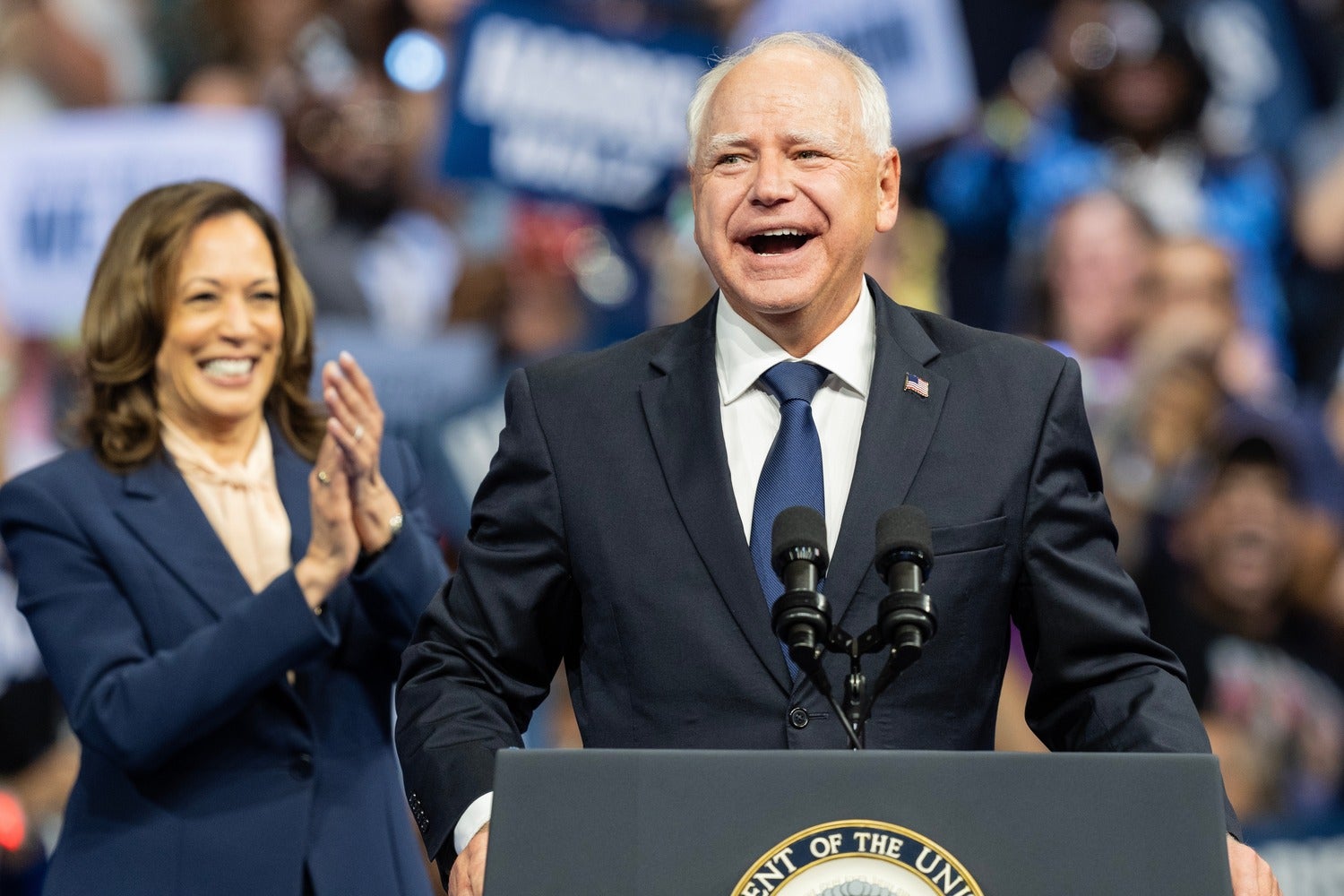Kamala Harris might have made the honor roll with her climate report card, but judging by a wave of endorsements from environmental groups, her V.P. pick, Minnesota Gov. Tim Walz, might be the valedictorian. “He brings sound judgment and a solid commitment to protecting the environment and public health in a way that advances equity,” Manish Bapna, CEO and president of the Natural Resources Defense Council Action Fund, told Reuters.
Here are three ways America’s Midwestern Dad has faced down the climate crisis in his home state.
He’s passed big climate policy…
Walz’s environmental work as Minnesota governor started early with the formation of a climate subcabinet and laying out a framework for state climate action, but a lot of the biggest progress has come in the last year or so. In February 2023, he signed legislation requiring utilities to produce 100% carbon-free electricity by 2040. So far, 54% of electricity in the state comes from carbon-free sources, compared to 41% nationally.
The real headline: In May 2023, Walz signed a package of 12 bills that function as the North Star State’s own version of the Inflation Reduction Act. These measures provide millions of dollars for everything from grid improvements and rooftop solar projects to rebates and credits for electric vehicles and heat pumps. Additionally, the package includes a huge win for public transit; it establishes a steady funding source for public transit via a sales tax in the Twin Cities and allots hundreds of millions of dollars for expanding light rail. “We can’t move too fast when it comes to addressing climate change,” Walz said at the bill signing. “This idea of waiting is a luxury we do not have.”
…and cut through red tape
Big climate policy is one thing. Working out the growing pains is another. When enacting his climate plan, Walz found that it was taking renewable energy companies too long to get through paperwork and bureaucracy.
So he made moves to change that. This past June, he enacted legislation that streamlines permitting processes for building carbon-free power stations—without curtailing environmental reviews—which chopped timelines by nine to 12 months. (For context, in the U.S., the average timeline for permitting, siting, and construction of renewable energy projects is around four years.) Walz also pushed a bill to accelerate the use of codes that stand to cut large buildings’ energy use by 80% by 2036. “He’s all about common sense, how to do things faster and better, more efficiently,” Minnesota state Rep. Larry Kraft told Semafor.
He knows how to talk to skeptics
Talking about the climate crisis can be tricky, especially when not everyone is on the same page. But Walz has earned a rep as one of the country’s most skillful climate communicators, mainly because he’s shown a deftness in talking with people who are on the fence. He does it not by going hard into the science, but by focusing on the things they care about: jobs and money. Other politicians credit Walz for putting in years of work to convince moderate leaders in Minnesota to support his climate policies.
Of course, like any elected official, Walz isn’t perfect. He approved the controversial Line 3 oil pipeline back in 2020 and celebrated a $1 billion investment in a hydrogen hub backed by petroleum giant Marathon. But another thing that comes up frequently in conversations about Walz is his willingness to listen and change his mind—just look at his history with the NRA.

